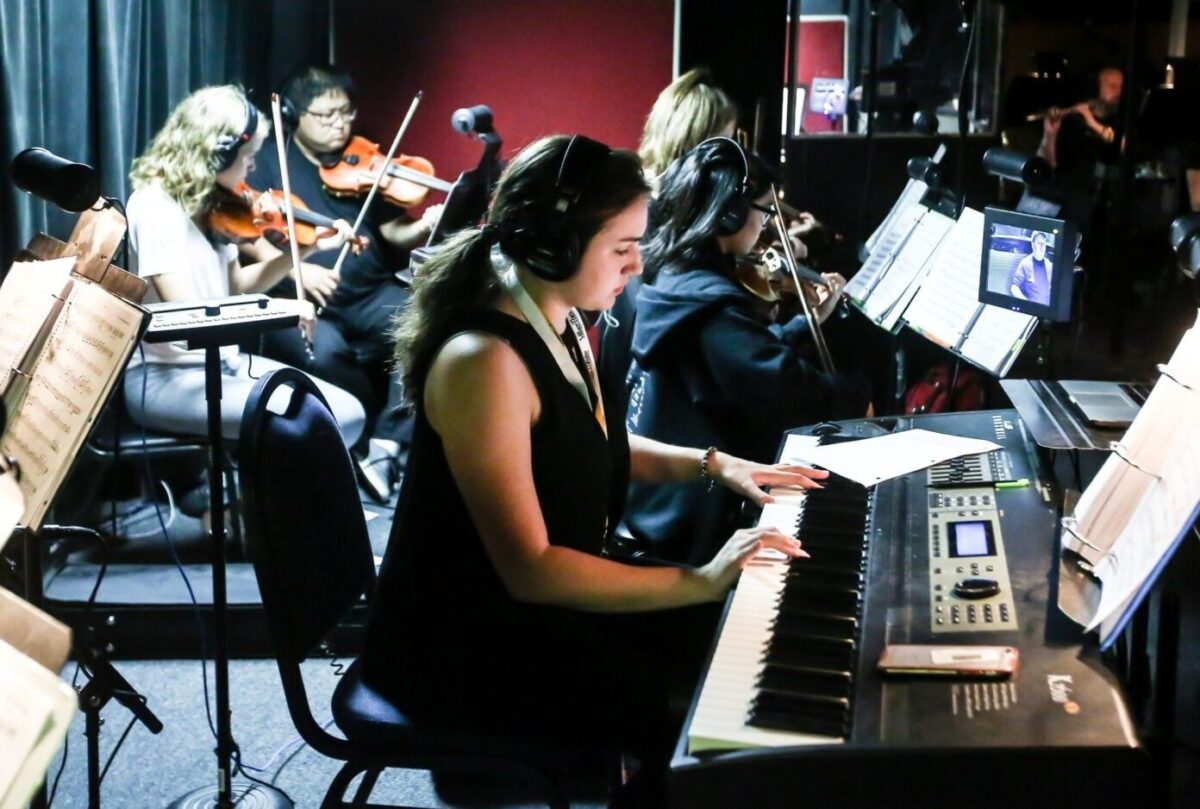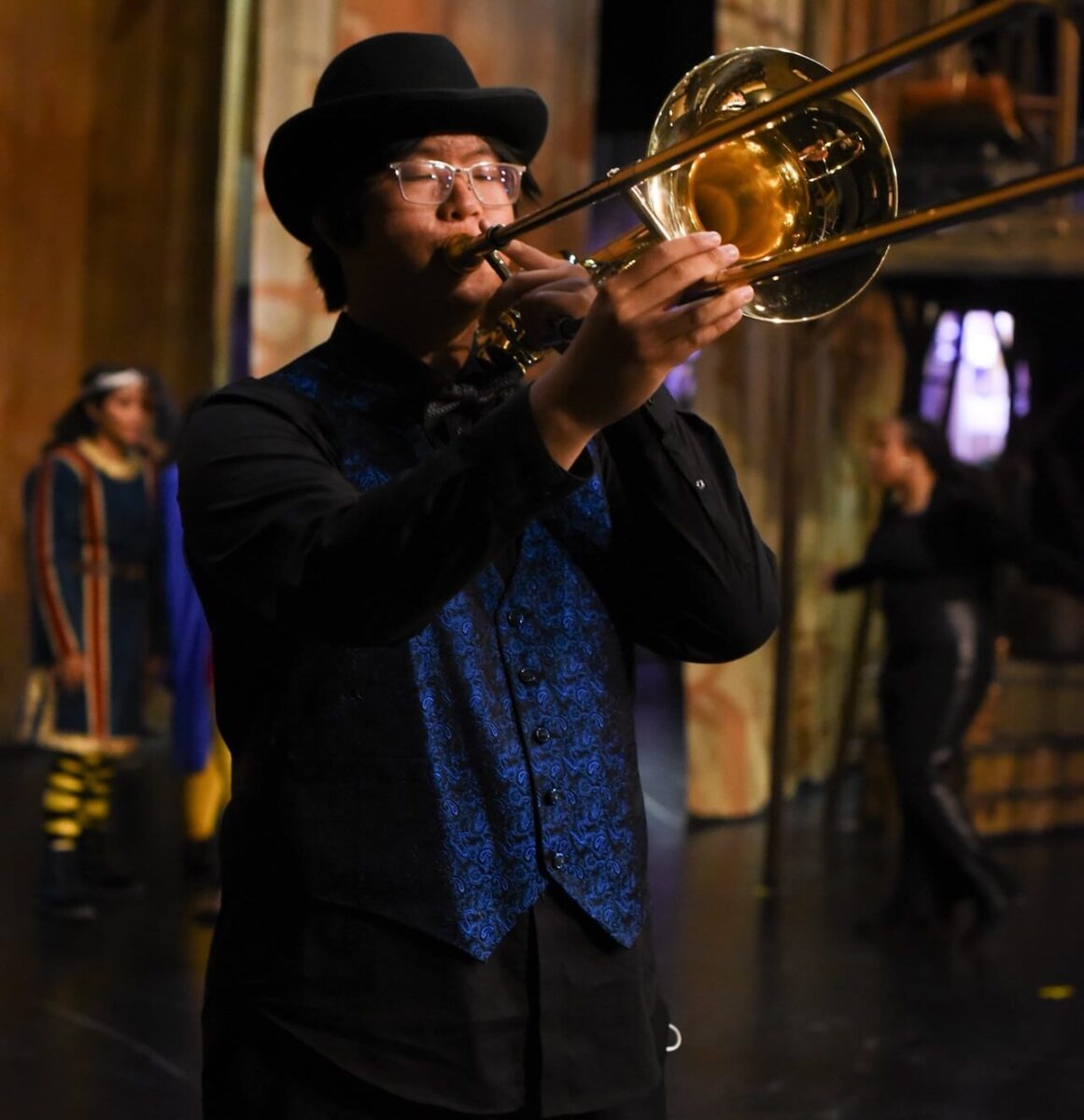Pit Orchestra Summer Institute
The UCLA PIT Orchestra Summer Institute provides intensive training for skilled student musicians in preparation for performing in a musical theater production pit orchestra.


Program Overview
The UCLA PIT Orchestra Summer Institute is designed for student musicians that are proficient in their instrument and have a passion for playing in a musical theater production pit orchestra. Students will rehearse with the musical theater ensemble and artistic team during rehearsals and take courses such as music, score/ script analysis, sight reading boot camp and master classes with industry professionals. These experiences will prepare students to perform in the culmination of a fully- staged musical.
Program Details
On-Campus (Commuter)
As a commuter, housing contracts are not available through UCLA Housing Department, however, the UCLA Summer Hostel that is located on the residence hill provides housing options for all registered UCLA Summer Sessions students who are 18 years of age or older. For those who will not securing housing on campus, it is expected that students who fall into this category will commute to class daily.
Grades and Transcripts
Program participants will earn units of credit on a letter-grading basis and will be recorded on an official University of California transcript. Please note that official transcripts are not automatically sent to students. To request a transcript, please contact the UCLA Registrar’s Office.
Coursework
Music 50; 2 units Theater 50; 2 units
Requirements
Applications are reviewed and admission to the program is granted on a rolling basis starting February 15th. Applying prior June 1st is highly recommended.
The UCLA Pit Orchestra Summer Institute welcomes passionate high school musicians dedicated to advancing their pit orchestra skills.
All applicants must be proficient on their respective instruments. A solid understanding of instrument technique and performance is required. Excellent music reading skills are essential to playing in a pit orchestra. Applicants should be able to sight-read music accurately and adapt to various musical genres and styles. Previous participation in a pit orchestra, either within a school or community theater setting, is a prerequisite.
Please submit one to three video files (no longer than 10 minutes each) of performance
work that demonstrates your playing in the following areas: musical theater pit orchestra or
ensemble performances. In your video submissions, please be sure you are highlighted. For
each file, you must include a PDF explaining the context of each piece and any other
relevant information.
In addition, you are required to submit a video file of you playing an excerpt from the show. Excerpts for each instrument can be found in the attached Google Folder. If you are auditioning for a book that involves multiple instruments (Reed Part), you must play the excerpt for each instrument. For example, if you are just a Bb Clarinet/Bass Clarinet player, only submit the excerpts for those instruments. The same applies to Alto Sax/Soprano Sax or any other combination of the four instruments. We encourage you to showcase your highest level of playing proficiency on your strongest instrument. Please share these files with dadams@tft.ucla.edu
Please note that the pit orchestra for this year’s musical “Urinetown,” requires reed players (Clarinet, Soprano Sax, Alto Sax, Bass Clarinet), Trombone, Bass, and Drums.
Urinetown Pit Audition Excerpts
Video Tips:
Please record using LANDSCAPE mode (horizontal) if possible, and do not film with a bright light behind you. Please be sure we can see you playing your instrument (eye level is best). We are not looking for professionally recorded videos, but please try to make sure you are in the frame and audible so we can best assess your talent.
Applicants must play one of the following instruments (Check the box):
Orchestration for “Urinetown”
- Bass
- Drums – Drum Set
- *Reed Doubler – Bb Clarinet, Alto Sax, Bass Clarinet, Soprano Sax (please circle your best instrument)
- Trombone (Euphonium and Bass Trombone Optional)
The *Reed Doubler part can be divided among two players if you are not a reed doubler. Note: The Bb Clarinet part is challenging with a strong emphasis on a Klezmer style of playing. The Clarinet is the most played instrument in the Reed part.
Participants are expected to bring their own well-maintained instruments, equipped with necessary accessories. Students auditioning on Drum set must bring their own kit. A drum set will not be provided.
Large equipment may remain on the UCLA campus in the secured Freud Playhouse Orchestra Pit.
Program Eligibility
- 9th-12th grade
- Ages 15-19
Grading Basis
Students will receive a letter grade upon completion. See University Credit, Grades and Transcripts for more information about academic credit.
Financial Aid and Scholarships
Important Dates and Deadlines
June 1, 2025
Application deadline
June 15, 2025
Enrollment Deadline
Sessions
July 20 – August 2, 2025